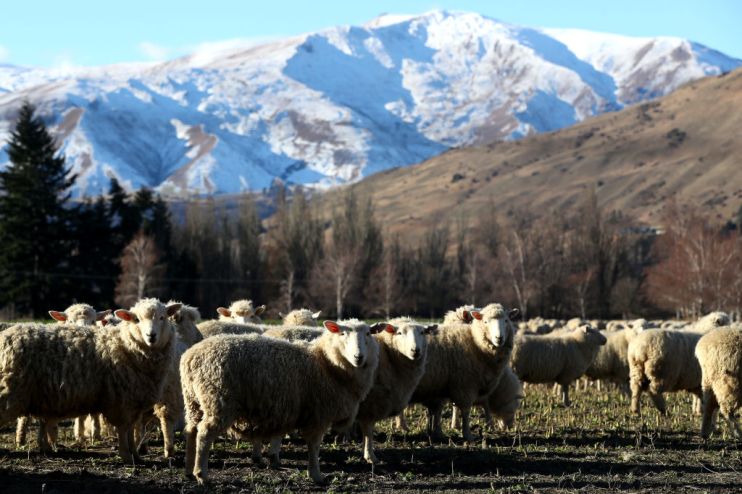Farmers’ union to renew row as UK trade deal to see tariffs slashed on New Zealand meat

The UK’s farmers’ union and Labour are ready to renew a row with the government over British farming as the UK prepares to cut all tariffs on New Zealand meat in an upcoming trade deal.
A senior Department for International Trade source told City A.M. that the UK-New Zealand trade deal is still on track to be agreed next month and that it is set to cut all tariffs on New Zealand agricultural goods.
This will mean greater access for New Zealand producers to sell dairy, beef, lamb and wine into UK markets in a repeat of the recently agreed Australian trade deal.
The National Farmers’ Union (NFU) went to battle with the government over the trade deal with Canberra earlier this year, arguing UK farmers would face unfair competition due to more lenient animal welfare practices in Australia.
The NFU’s chief EU exit and international trade adviser Gail Soutar said the union would maintain the same stance on any New Zealand trade deal.
Labour shadow international trade secretary Emily Thornberry told City A.M. that she would oppose a zero-tariff New Zealand trade deal, despite polling showing the British public is in favour of more trade with the Commonwealth nation.
“The NFU and its members, understandably have concerns over the potential impact of trade deals that completely eliminate all tariffs on imports from the biggest agricultural exporters in the world, including New Zealand,” Soutar said.
“It is vital that the UK government approaches all of its negotiations with countries including Australia, New Zealand, USA, Canada and Mexico – all major agricultural producers and exporters – on their own terms and ensure that future deals balance access to UK agricultural markets with at least the same level of opportunities for British agri-food exports.”
It is understood the terms will be similar to the Australian deal where all current tariffs and quotas on agricultural exports will be phased out over a 15-year period.
Nevertheless, Labour and the NFU argue that opening up British markets to New Zealand producers will lead to other large economies like Brazil and America demanding similar terms.
Thornberry said if this happens the “cumulative impact on British farming communities will be devastating”.
“According to the government’s own scoping paper in June 2020, offering New Zealand the same terms as Australia will directly reduce growth and jobs in the UK farming sector,” she said.
Tourism and agricultural exports are the backbone of the New Zealand economy, with the country trading mostly with Australia and throughout Asia.
New Zealand trade minister Damien O’Connor told the Financial Times that a UK trade deal would not lead to his country’s goods flooding the British market and that Asia would remain the priority for exporters.
New Zealand is also considered to have among the highest animal welfare standards in the world by World Animal Protection – a UK-based NGO.
Polling by the Adam Smith Institute, a free market think tank, found the majority of Brits were in favour of trading more with New Zealand.
The polling found this support was consistent across both Leave and Remain voters.
A source close to international trade secretary Liz Truss said the NFU will shoot themselves in the foot by opposing the trade deal due to the widespread popularity of a potential agreement.
“The NFU will fire off their ammo ludicrously against New Zealand – a country where apes have legal human rights. There is no more soppy country about animals and I include in that the Buddhist ones,” they said.
“The idea British farmers will be undercut will look so absurd, particularly as British lamb is counter seasonal to New Zealand lamb.”
Matthew Lesh, head of research at the Adam Smith Institute, said: “A zero tariff deal would mean British consumers getting more access to New Zealand goods, and British producers having more export opportunities for British cheese, cars and Scottish Whisky.
“We should believe in the ability of British farmers to compete globally.”
A prospective UK-New Zealand trade deal is also expected to include provisions to allow greater access to long-term visas for Brits travelling to New Zealand and extensive agreement on data sharing.
It will likely also see tariffs slashed on British-made cars and further improve the UK’s chances of being admitted to the 11-country Comprehensive and Progressive Agreement for Trans-Pacific Partnership (CPTPP).
A DIT Spokesperson said: “We have always been clear that any deal would include protections for our agricultural sectors. Trade deals, like the one we are working to secure with New Zealand, will open up opportunities for UK farmers to access regional trading blocs like CPTPP for their premium produce.”